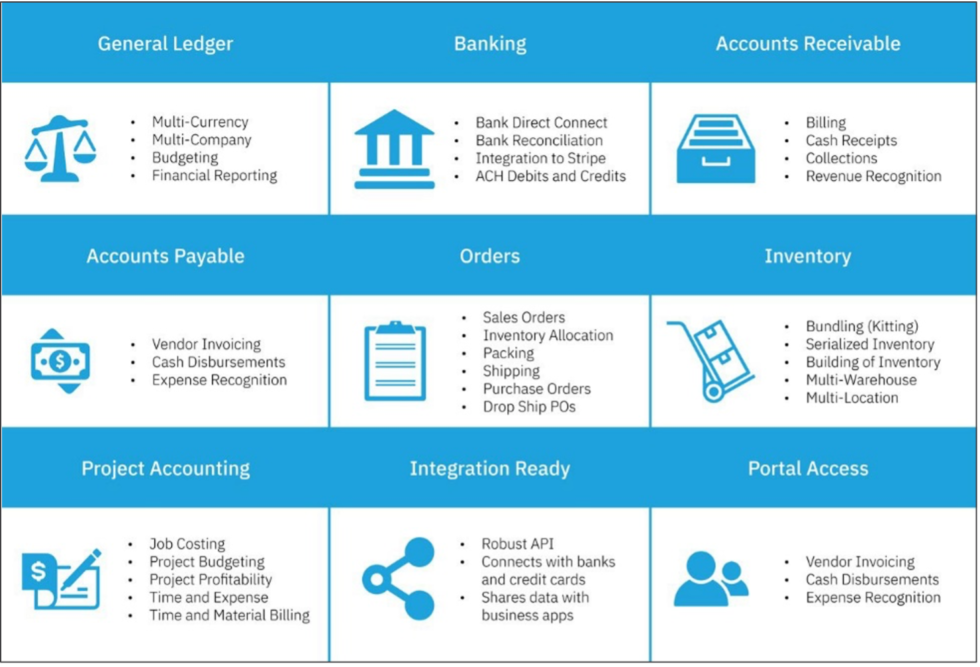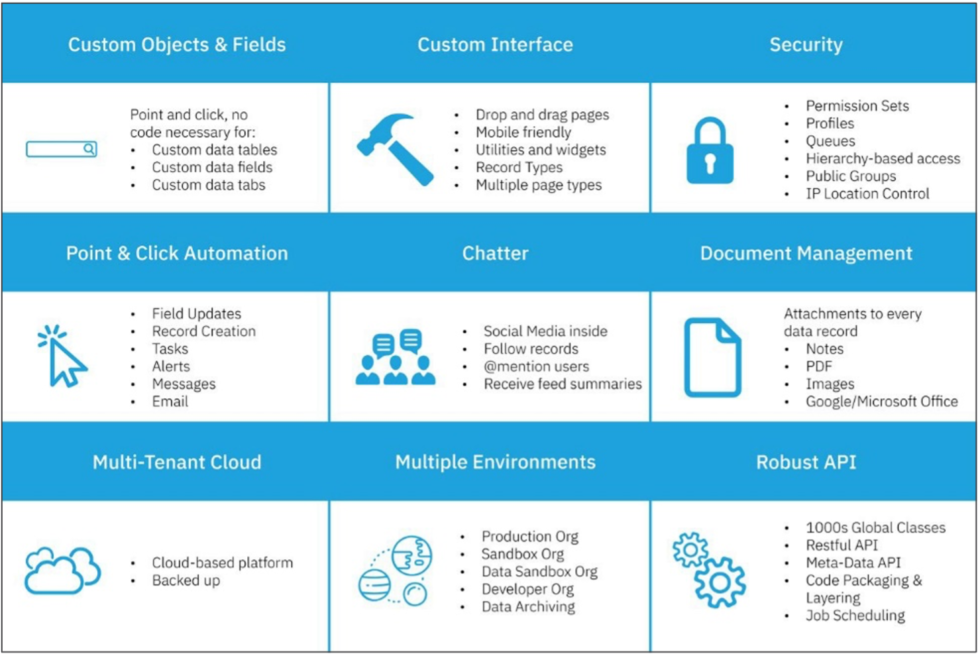Accounting Software Buyers Guide
Part 2: Things to look for
What is considered standard functionality in accounting systems today?
A lot of accounting systems are equipped with core fundamental functions. For example, most applications will be cloud-based, able to email things like invoices to customers and stakeholders, and perform batch billing processing.
Here are the standard features and functionalities you’ll need to look for when choosing the right accounting software:

It’s important to ask yourself whether basic accounting application functions are enough. You’ll probably find that they aren’t. What most companies need is an accounting platform, not just an accounting application.
What’s an accounting platform versus an accounting application?
What separates an IT platform from an IT application is the level of control and operational dexterity it allows. An accounting application’s goal is to help you just manage your accounting, and it’s equipped with the basic tools mentioned above. It may allow you to customize some aspects of your accounting process, but this tends to be limited. You’ll be able to access functions and perform key processes, but generally, you’re restricted to the framework of the accounting application.
An accounting platform isn’t just a framework, but also a toolset you can use to dictate how you use the technology. An accounting platform is an “IT stack” of technology designed specifically for you to build on top of it. IT platforms are designed to be tailored according to user needs. You’ll have basic accounting system functions, but platforms also contain features that let you customize and control how they serve your needs. This differs from a basic accounting system that remains set in what it offers. The design goal behind accounting platforms is to offer more advanced functionalities in a way that it can continue being built upon for better use. What really makes your accounting functions scale are the platform features that help you navigate and manage the accounting solution.
What are some value-added platform features today?
Platform functions are tools within the system that let you communicate, share and update data, secure information, and manage operations within the platform. These are not accounting functions. These are features that optimize how you work within the accounting tool, giving you full control over the accounting data and process.
Here are some value-added accounting platform functions:

You’ll see that many of these features make the basic tasks around accounting easier. Having task functions enables you to assign, monitor, and complete events in the system. This can be a vital tool for helping meet key deadlines, like a monthly close. Accounting software features such as these enrich accounting processes because they allow companies to use the technology more dynamically.
Table of contents
Overview: Accounting software buyer's guide
Expert advice on what you need to know when buying accounting software.
Learn More
Part 1: Thinking about making a switch
Three things to know if it's been a while since you shopped for accounting software
Learn more
Part 2: Things to look for
Learn about what is considered standard functionality in accounting systems today.
Learn more
Part 3: Choosing accounting software
Identify what differentiates individual accounting products from others.
Learn more
Part 4: Security
Learn how to avoid the biggest external and internal threats to your accounting system.
Learn more
Part 5: Dollars and sense
See how you should calculate the total cost of ownership for your accounting solution.
Learn more